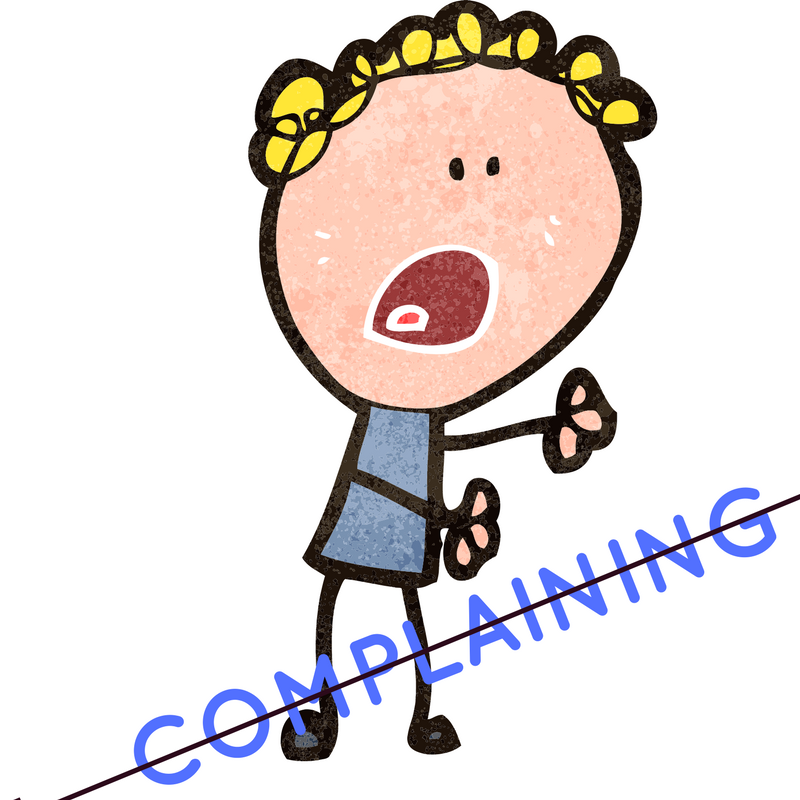 Are you a leaker?
Are you a leaker?
Remember last week, we learned how Jack responded when he was upset with Tina. (Here’s last weeks post if you missed it—Are you a Stuffer?) Jack was a stuffer so whenever he was upset, he just stuffed it. That way he could avoid conflict. (because he really hated conflict and wanted to avoid it at all costs.)
This week we’re going to look at how Tina handles her emotions when she’s upset.
Tina is a stuffer too, but she adds a little kicker to hers. She’s also a leaker.
When Tina is upset, she doesn’t say anything, because she’s a very nice person—(and she’s been taught that anger isn’t very nice) so she stuffs it and then silently leaks it out in her actions.
Last week, Jack asked Tina if she minded if he went on a fishing trip with some guys from work for the week-end. Tina, because she’s really nice, said “Of course, you go and have fun!” When Jack returned from the trip, Tina leaked her true feelings–she barely talked to him for three days and when they were in the room together, Jack felt as if he were invisible.
Tina appeared nice, (sweet, compliant and agreeable—you go have fun!) but she leaked her true feelings of resentment, anger and envy.
They were leaked in the form of the silent treatment for Jack not figuring out what she really wanted him to do which was for him to stay home with her.
A leaker doesn’t speak the truth openly when asked their opinion. They say “yes” when they really mean “no.” Their behavior leaks the “no” they really meant. This becomes confusing for people who are in a relationship with a leaker. Since they can’t always trust a leaker’s words, they are often trying to guess what the leaker is really thinking and feeling. (“Is she really ok with me going on the fishing trip?” Or “Am I going to pay for it later?”) It can be very exhausting.
Remember when Tina forgot to ask for time off work to attend Jack’s work convention? The truth is that Tina didn’t want to go to the conference with Jack and rather than directly confront him to talk about it, she leaked it out by not even asking for the time off of work and then pretending that she’d been so busy that she just forgot.
This way Tina could avoid confrontation and still come across as ‘nice’—after all, we all get busy and forget things.
Sometimes Tina would withhold information from Jack: “Oh, didn’t I tell you about that—I thought I did.”
Sometimes when Tina was upset, she’d purposely fake being happy. (because that’s the nice way to be.) Jack was so confused because he could feel the mixed messages and it kept him off balance.
Leaking goes along with the saying–“sugar and spice and everything nice.” Being angry isn’t ‘nice’ so leakers sneakily express their anger.
- You accidentally make the coffee too strong.
- You accidentally slam the door.
- You accidentally bang the dishes too loud.
- You accidentally burn the steak.
These actions are all under the guise of, “Oh, I’m so sorry I didn’t mean to do that.”
Leakers also use are ‘sarcastic remarks’ and then when you call them on it, they say “Oh, I didn’t mean it to sound like that.” “Geez you are so sensitive.”— They turn the table on you to make you feel wrong and guilty.
Sometimes a leaker is truly blind to their own behavior. They truly don’t even realize what they are doing.
Do you have leaker tendencies?
Answer these questions to find out:
- Someone said something that hurt your feelings. In response, you:
A. Confront him about it.
B. Say something hurtful in return.
C. Keep icy silent until he/she figures out what they did wrong.
2. Your co-worker is borrowing things from your desk without asking you and it’s bugging you. In response, you:
A. Politely tell them how you feel and ask them to ask you.
B. Get over it because it’s really not that big of a deal.
C. Lock your desk drawers so they can’t get to your stuff.
3. You’ve been feeling neglected by your partner. When he/she finally makes an effort to spend time together, you:
A. Enthusiastically agree.
B. Tell them yes and explain how you’ve been missing them and feeling lonely.
C. Wait for them to call you when you don’t show up to make sure they “really” want you there.
If “C” sounds familiar to you, then you are probably acquainted with the ‘leaking’ tactic. Leaking can take on a lot of forms, including resentment, hostility, procrastination and a negative attitude.
Being in a relationship with a leaker isn’t easy. You’re not even sure when they aren’t telling the truth. Maybe they really did just forget. Maybe they really aren’t banging those dishes around on purpose. Maybe they did just accidentally burn the steak.
You’re often left wondering how they really feel. “Maybe she is ok with me going on the fishing trip but maybe she’s not.” “I don’t know!” It can be confusing—you never know what to really think.
It’s only by having the courage to speak up, to respectfully be clear and direct that we can improve ourselves and our relationships.
You have to be brave enough to tell people how you really feel and ask for what you really need.
This means you have to risk having a confrontation and you need to remember that confrontation can be direct and respectful, it doesn’t have to be an argument or an attack. It doesn’t have to be something bad.
Sometimes a confrontation is needed to move the relationship forward in a positive direction.
Avoiding confrontation leads to more indirect expressions of angry feelings which leads to more angry feelings. It’s a vicious cycle that keeps feeding on itself.
Being a stuffer or a leaker actually intensifies your emotions.
Life and relationships are so much easier and more enjoyable when you learn to Master Your Emotions.
Register here for my FREE online class to learn more ways to improve you, your life and your relationships.
Class: How to Improve Your Life and Relationships by Mastering Your Emotions” (Master Your Emotions before they Master You”)
When: Wednesday, November 1 @ 7pm
Register Here
You’ll learn:
How to express your emotions in a calm, rational manner (so you can increase connection and caring in your relationships)
How to avoid the #1 mistake most people make that intensifies their feelings of “I can’t take it anymore.” (change this and you’ll be happier)
How to stop taking things ‘personal’ so you can stop being so easily offended (then watch your life and relationships get easier)
A simple and easy way to stop being so easily irritated and annoyed. (so you can have fun and enjoy your relationships)
How to intentionally choose your emotional responses even when someone is taking their bad day out on you. (so you don’t add more fuel to the fire)
Click Here to Register and all the details will be sent to you.



 How often do you complain?
How often do you complain?
